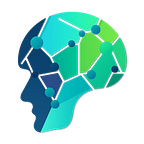Microsoft Unveils AutoGen to Revolutionize Conversational AI Apps
Conversational artificial intelligence (AI) is transforming numerous industries by enabling more natural interactions between humans and computers. From virtual assistants to chatbots, voice interfaces, and avatars, conversational AI is becoming increasingly prevalent in everyday digital experiences. However, building the complex workflows that power these next-generation systems remains challenging for most companies.
To accelerate development of advanced conversational AI applications, Microsoft recently introduced AutoGen, an open-source Python library that streamlines orchestrating multi-agent conversations. With AutoGen’s customizable and intelligent agents, developers can readily construct sophisticated conversational systems and workflows using combinations of AI, tools, and human inputs.
Democratizing Complex Conversational AI Workflows
A key goal of AutoGen is democratizing the creation of intricate conversational AI applications. Traditionally, building multi-turn workflows involving several AI components has required extensive engineering expertise and effort. AutoGen encapsulates the complexity behind easy-to-use agents and interfaces.
Some examples of applications enabled by AutoGen:
- Tutoring systems where students converse with an AI tutor that can call an expert for help when needed
- Troubleshooting chatbots that propose solutions, execute tools, and incorporate human feedback
- Interactive fiction games with conversational NPCs powered by AI and humans
- Data analysis workflows where users discuss options with an AI assistant that runs code and queries databases
With AutoGen’s pre-built agents and simple API, developers can set up the conversational ‘cast’ and interactions for their application in just a few lines of Python code. The complexity of conversing, remembering context, integrating tools, handling errors, and supporting dynamic multi-agent chatter happens automatically behind the scenes.
AutoGen Agents — Conversational Building Blocks
At the core of AutoGen are customizable agents that can chat with each other and humans to solve problems. There are two key types of agents:
- Assistant agents provide domain expertise using large language models like GPT-3.5 and GPT-4. They can be configured with instructions and knowledge for different roles.
- User proxy agents act on behalf of humans. They can request inputs, execute tools through code, or take other custom actions.
By combining these agents into multi-agent systems, developers can construct auto- mated workflows with flexible human involvement. Agents exchange messages until they mutually determine the conversation has achieved its goal.
For instance, an assistant agent might propose an analytical approach while the user proxy agent runs simulations to validate the idea before reporting results back to the assistant. AutoGen streamlines the intricacies of conversation management so developers simply define the agents and their interactions.
Maximizing Value from Large Language Models
In addition to simplifying complex workflows, AutoGen also includes features to maximize the value derived from expensive large language model APIs like OpenAI’s.
AutoGen helps users:
- Fine-tune model hyperparameters like temperature, presence penalty, and stop sequences to optimize for metrics like accuracy, cost, etc.
- Cache model outputs to avoid redundant expensive calls.
- Automatically handle errors and retries to improve reliability.
- Seamlessly blend outputs from multiple model configurations.
Tools like these ensure users efficiently tap into the vast capabilities of large language models through a robust interface.
Microsoft is particularly focused on responsible and ethical standards for AutoGen. They incorporated algorithmic techniques to provide transparency and maintain human oversight over any automated conversations between agents.
Empowering a New Generation of AI Applications
AutoGen tackles a common pain point in leveraging today’s most advanced AI capabilities: the burdensome process of coordinating multiple conversational AI components. With its blend of simple abstractions and powerful features, AutoGen opens the door to new categories of AI applications:
- Medical chatbots that discuss patient cases with doctors before synthesizing expert advice
- Multi-modal VR agents that converse with users and AI assistants while manipulating 3D environments
- Interactive fiction games with dialogue trees branching based on player choices and AI improvisation
- Data science workflows where users explore models through natural language conversations with AutoGen agents
AutoGen represents an important step in making sophisticated AI more accessible. Its potential to unlock new products and experiences makes AutoGen one of the most exciting recent developments in conversational AI.
Key Takeaways for Business Leaders
For business leaders, AutoGen represents an opportunity to leverage conversational AI in new ways across customer engagement, operations, employee productivity, and more. Companies that leverage AutoGen early could gain a competitive advantage in their ability to rapidly deploy innovative conversational experiences.
AutoGen is an enabling technology that can help businesses adopt conversational AI at scale by making development drastically easier. Its potential to unlock new products and efficiencies makes it a platform business leaders should have on their radar.
Sources:
AutoGen: Enabling Next-Gen LLM Applications via Multi-Agent Conversation
